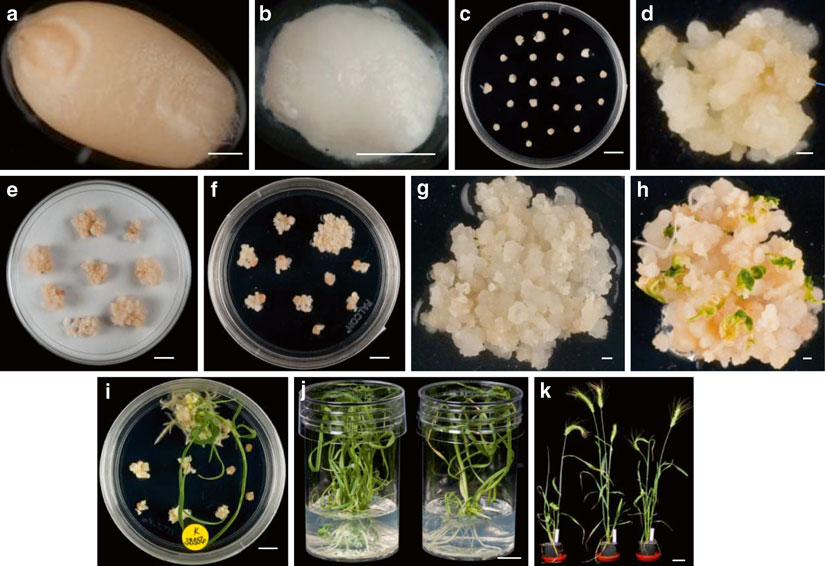Triticum aestivum, also known as wheat, is one of the most important crops in the world. Due to its enormous nutritional significance and high economical values, wheathas been regarded as an essential cereal model organism for the study of plant growth regulation and crop yield improvement.
Urged by nowadays’ increasing market demand, it is necessary to generate wheat breeds with high productivity and robust resistance against stress conditions. Therefore, the highly efficient genetic engineering technique has been put under the spotlight of modern agriculture. The most widely used methods in wheat genetic transformation are biolistic-mediated and Agrobacterium-mediated transformation. Both transformation methods can be performed using cultivated plant tissues, such as freshly isolated immature embryos, precultured immature embryos, or embryogenic calli derived from mature or immature embryos. After the transformation process, these explants can be regenerated into fertile transgenic wheat plants (Figure 1). Aside from plant tissue culture, in planta transformation protocols are also available, including:
 Figure 1. Wheat transformation using mature embryos as the target tissue (Medvecká and Harwood, 2015)
Figure 1. Wheat transformation using mature embryos as the target tissue (Medvecká and Harwood, 2015)
Lifeasible offers our customers with professional one-stop services, covering all steps including experimental design, vector construction, plasmid transformation, positive transplant screening and testing. Adapting to diverse purposes of all customers, a variety of wheat genotypes (Kenong199, Longchun23,Bobwhite, Fielder, Westonia, Gascoigne, Sunvale, Sunstate, Stewart, Gladius, Janz, etc), multiple Agrobacterium strains (GV3101, AGL-1, EHA101, EHA105, and C58C1), as well as commercial and customized binary vectors with variant selectable markers (Kanamycin, Hygromycin, Phosphinothricin, G418, etc.) are readily available for your use. Experts at Lifeasible obtain comprehensive knowledge and years of experience to solve technical problems and challenges in wheat transformation. Our services guarantee the success of each project.
Reference:
Lifeasible has established a one-stop service platform for plants. In addition to obtaining customized solutions for plant genetic engineering, customers can also conduct follow-up analysis and research on plants through our analysis platform. The analytical services we provide include but are not limited to the following:
July 13, 2024